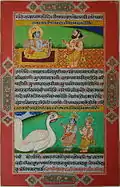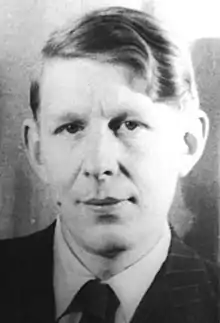Welcome to the Poetry Portal


Poetry (a term derived from the Greek word poiesis, "making"), also called verse, is a form of literature that uses aesthetic and often rhythmic qualities of language − such as phonaesthetics, sound symbolism, and metre − to evoke meanings in addition to, or in place of, a prosaic ostensible meaning. A poem is a literary composition, written by a poet, using this principle.
Poetry has a long and varied history, evolving differentially across the globe. It dates back at least to prehistoric times with hunting poetry in Africa and to panegyric and elegiac court poetry of the empires of the Nile, Niger, and Volta River valleys. Some of the earliest written poetry in Africa occurs among the Pyramid Texts written during the 25th century BCE. The earliest surviving Western Asian epic poem, the Epic of Gilgamesh, was written in the Sumerian language.
Early poems in the Eurasian continent evolved from folk songs such as the Chinese Shijing as well as from religious hymns (the Sanskrit Rigveda, the Zoroastrian Gathas, the Hurrian songs, and the Hebrew Psalms); or from a need to retell oral epics, as with the Egyptian Story of Sinuhe, Indian epic poetry, and the Homeric epics, the Iliad and the Odyssey. (Full article...)
Selected article

Verses in the Ramayana are written in a 32-syllable meter called anuṣṭubh. The Ramayana was an important influence on later Sanskrit poetry and Hindu life and culture. Like the Mahabharata, the Ramayana is not just a story: it presents the teachings of ancient Hindu sages (Vedas) in narrative allegory, interspersing philosophical and devotional elements. The characters Rama, Sita, Lakshman, Bharata, Hanuman, and Ravana are all fundamental to the cultural consciousness of India, Nepal, and many south-east Asian countries such as Thailand and Indonesia. (Full article...)
Selected image
Poetry WikiProject

Selected biography

Auden grew up in and near Birmingham in a professional middle-class family and read English literature at Christ Church, Oxford. His early poems from the late 1920s and early 1930s, written in an intense and dramatic tone and in a style that alternated between telegraphic modern and fluent traditional, established his reputation as a left-wing political poet and prophet. In the late 1930s he became uncomfortable in this role and abandoned it after he moved to the United States in 1939, where in 1946 he became an American citizen. In his poems from the 1940s he explored religious and ethical themes in a less dramatic manner than in his earlier works, and combined traditional forms and styles with new, original forms. The focus of many of his poems from the 1950s and 1960s was on the ways in which words revealed and concealed emotions. He took a particular interest in writing opera librettos, a form ideally suited to direct expression of strong feelings.
He was also a prolific writer of prose essays and reviews on literary, political, psychological and religious subjects, and he worked at various times on documentary films, poetic plays and other forms of performance. Throughout his career he was both controversial and influential. After his death, some of his poems, notably "Funeral Blues" ("Stop all the clocks"), "Musée des Beaux Arts", "Refugee Blues", "The Unknown Citizen", and "September 1, 1939", became known to a much wider public than during his lifetime through films, broadcasts, and popular media. (Full article...)
Did you know (auto-generated) -
- ... that newspapers in Brazil printed cake recipes and 16th-century poetry to cover material censored by the military dictatorship?
- ... that Mexican poet Francisco de Terrazas was praised by Don Quixote author Miguel de Cervantes?
- ... that Eritrean poet Yirgalem Fisseha Mebrahtu was imprisoned for six years without trial, and later published poems in Tigrinya based on her experience?
- ... that Walt Whitman's poem "The Sleepers" contains "one of the most powerful and evocative passages about slavery in American literature"?
- ... that Langston Hughes allowed his poem "Mississippi–1955", written in response to Emmett Till's lynching, to be republished in all newspapers that wanted to?
- ... that a line from the 1899 poem "Sympathy" provided the title for Maya Angelou's autobiography I Know Why the Caged Bird Sings?
Selected poem
| A Mountain Home by Heinrich Heine |
|---|
|
On the mountain stands the shieling, |
Related portals
Topics
Recognized content
Categories
Associated Wikimedia
The following Wikimedia Foundation sister projects provide more on this subject:
-
 Commons
Commons
Free media repository -
 Wikibooks
Wikibooks
Free textbooks and manuals -
 Wikidata
Wikidata
Free knowledge base -
 Wikinews
Wikinews
Free-content news -
 Wikiquote
Wikiquote
Collection of quotations -
 Wikisource
Wikisource
Free-content library -
 Wikiversity
Wikiversity
Free learning tools -
 Wiktionary
Wiktionary
Dictionary and thesaurus
-
 List of all portals
List of all portals -

-

-

-

-

-

-

-

-

-
 Random portal
Random portal -
 WikiProject Portals
WikiProject Portals
